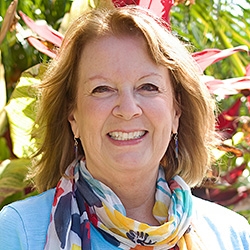
NVC Resources on Anger
-
With practice we can prevent reactivity from overtaking and harming: notice signs of reactivity, bring compassion to it, see reactivity as the misperception of threat and a distortion of what's happening, plus engage and pursue connection and the clarity to weaken reactive impulses. In taking responsibility like this overtime, you can live from your values and from care. And life can get easier for you and others around you.
-
Hearing actions that lead to living beings' harm, you may notice that some people believe that the needs of some must come at the cost of others. This view arises from fear and an economic system meant to promote and feed off false scarcity. When struggling with this, grieve, receive support, and notice your feelings show you certain values matter to you. From this sense of purpose you can find where you can be of most service.
-
Duke Duchscherer shares that Restorative Circles have the ability to transform relationships. Groups may start with feelings of worry, anxiety, fear, anger, and even hatred. The dialogue process supports a shift to more ease, connection, and trust.
-
“Nonviolence” is not just a political tactic. It is a “soul force,” a courageous and compassionate stand in the face of what seems to us unjustly unequal, oppressive, and violent. It is the force of love meeting and transforming what appears to not be love.. It is the force of love meeting and transforming what appears to not be love. It is speaking and listening with courage, compassion, and an open heart and mind and rooted in our truth in a way that bridges understanding. And doing so without demand nor trying to convince -- all in the face of any anger, fear, oppression, inequality, violence or disagreement.
-

Radical Understanding In A Post-Truth World
(Part 1 of 2)
Whether its pandemics, climate change, damage to the environment or other massive challenges that humanity faces, what are we to do if we can't agree on even the most basic information and knowledge? From empathic understanding we can focus on shared, universal human needs (where there is no conflict or disagreement) underlying our perceptions, and feelings. Then we can see if there are ways we can agree on to meet those needs.
-
We only have this decade to make radical changes to avert crossing over into an unlivable Earth. What's essential is a critical mass of people with capacity to respond to many enormous, daunting social-environmental challenges. This means on a wider scale, responding to conflict, fear, hate, injustice and violence with the ability to see our commonality underlying our differences. And to feel part of a larger whole so we can birth natural caring, togetherness, and cooperation.
-
Rachelle Lamb invites us to consider how our well being is impacted by what we choose to put at the center of our narrative regarding our needs. And how that affects whether or not we get closer to truly serving life and compassion...
-
Why is it so difficult to change our patterns even when we want to, even when we experience shame or despair about them? Arnina Kashtan offers some of the common pitfalls and concrete steps to overcome them in the future.
-
Read how an American Buddhist NVC teacher with Jewish roots reflects on how any dehumanization in the Israel-Hamas conflict can be used to justify all kinds of violence that can escalate for generations. With acknowledgment of the complexities, his desire is for us to bring in respect, dignity and peace -- for both Israelis and Palestinians. He emphasizes compassionate advocacy of all humanity amid the ongoing crisis.
-
Trainer Tip: Mary shares an experience about accepting responsibility for her actions and how that lead her to greater choice and freedom.










